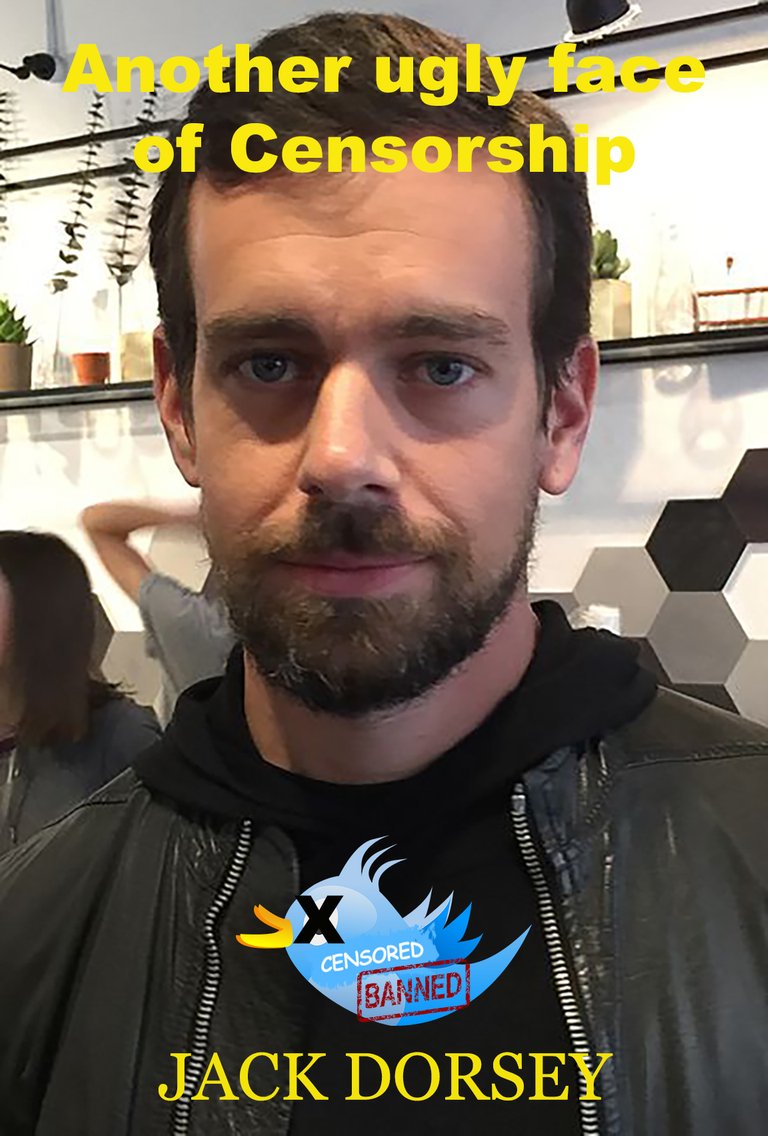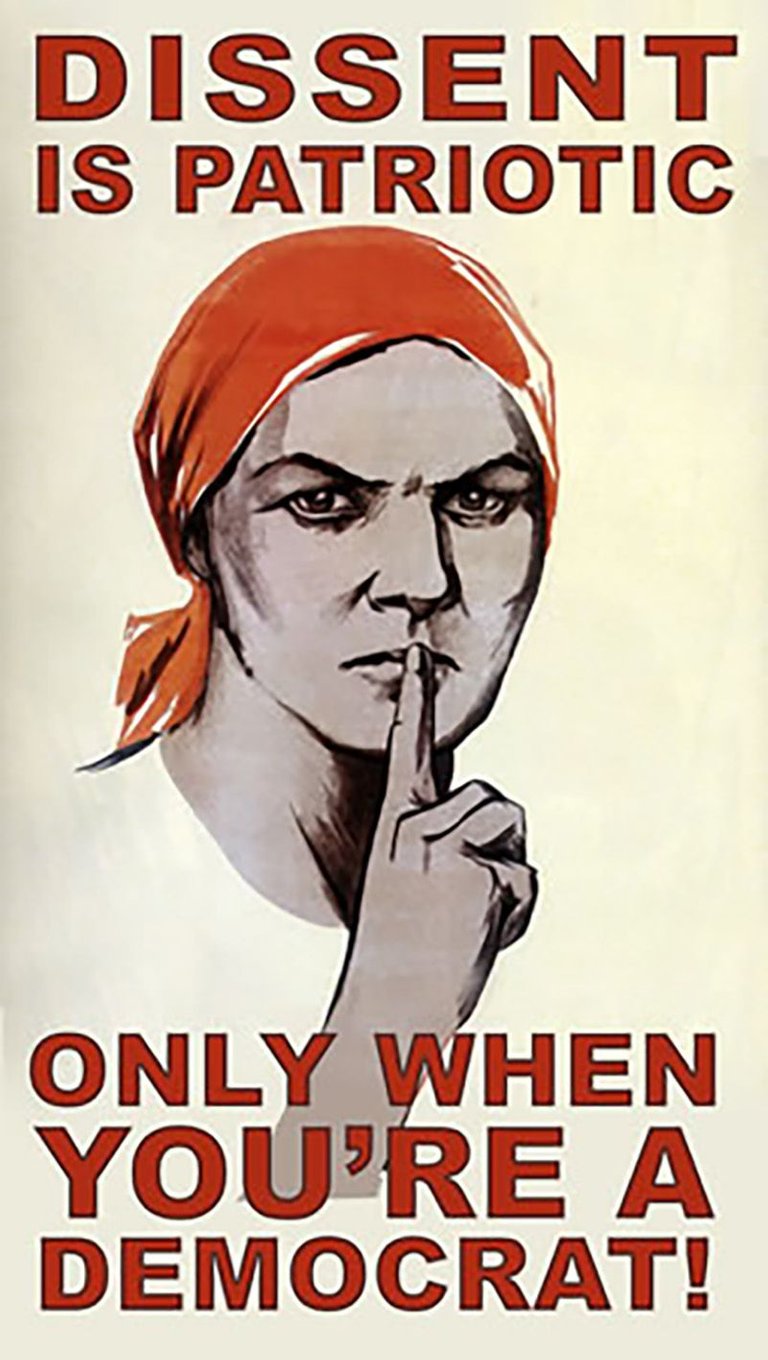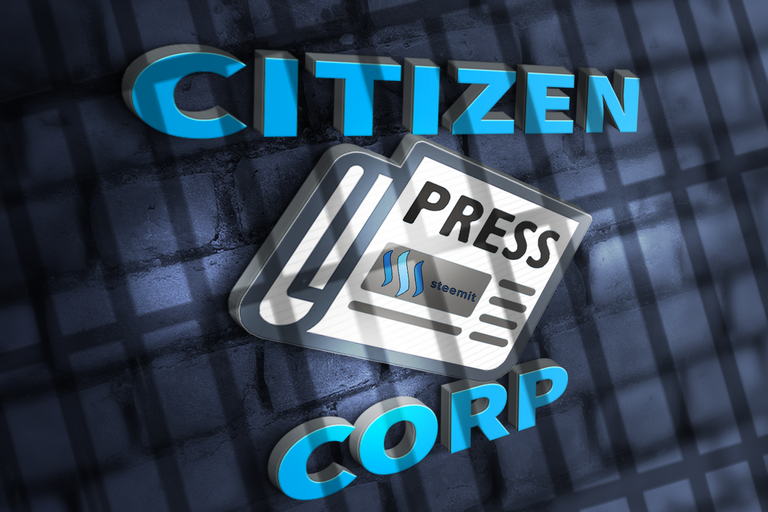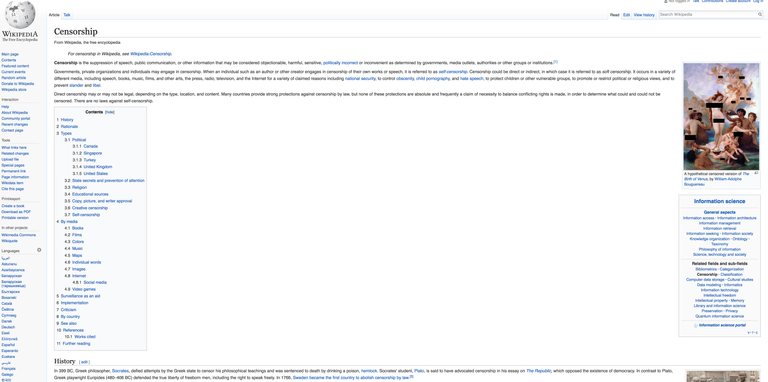
Censorship
From Wikipedia, the free encyclopedia
Censorship is the suppression of speech, public communication, or other information that may be considered objectionable, harmful, sensitive, politically incorrect or inconvenient as determined by governments, media outlets, authorities or other groups or institutions.[1]
Governments, private organizations and individuals may engage in censorship. When an individual such as an author or other creator engages in censorship of their own works or speech, it is referred to as self-censorship. Censorship could be direct or indirect, in which case it is referred to as soft censorship. It occurs in a variety of different media, including speech, books, music, films, and other arts, the press, radio, television, and the Internet for a variety of claimed reasons including national security, to control obscenity, child pornography, and hate speech, to protect children or other vulnerable groups, to promote or restrict political or religious views, and to prevent slander and libel.
Direct censorship may or may not be legal, depending on the type, location, and content. Many countries provide strong protections against censorship by law, but none of these protections are absolute and frequently a claim of necessity to balance conflicting rights is made, in order to determine what could and could not be censored. There are no laws against self-censorship.
dis·sent
[dəˈsent]
VERB
hold or express opinions that are at variance with those previously, commonly, or officially expressed:
"two members dissented from the majority" · [more]
NOUN
the expression or holding of opinions at variance with those previously, commonly, or officially held:
"there was no dissent from this view"
synonyms: disagreement · difference of opinion · argument · dispute · disapproval · [more]
More definitions, word origin and translations




Hi! I am a robot. I just upvoted you! I found similar content that readers might be interested in:
https://en.wikipedia.org/wiki/Censorship